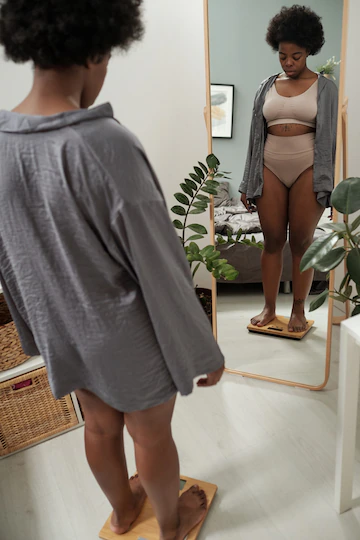Body image is a critical aspect of a person’s self-esteem and overall well-being. In today’s world, where societal standards of beauty are often unattainable and unrealistic, it is crucial to promote positive body image among children and teens. In South Africa, like many other countries, young people are exposed to a barrage of media messages and societal pressures that can negatively impact their perception of themselves. However, there are several effective strategies that parents, educators, and communities can employ to foster a healthy body image among South African youth.
- Emphasize health over appearance: Encourage children and teens to focus on their overall well-being rather than solely on their physical appearance. Teach them about the importance of eating nutritious foods, engaging in regular physical activity, and taking care of their mental and emotional health. By shifting the focus from appearance to health, young people can develop a more balanced and positive view of their bodies.
- Challenge societal beauty standards: Discuss with children and teens how beauty standards are often unrealistic and unattainable for most people. Help them understand that diverse body shapes, sizes, and features are natural and beautiful. Encourage them to question media messages that promote narrow definitions of beauty and to celebrate their unique qualities.
- Encourage media literacy: Teach children and teens to critically analyze media messages about body image. Help them understand that many images they see in magazines, advertisements, and social media platforms are often heavily edited and manipulated. Encourage them to follow diverse and body-positive social media accounts that promote realistic and inclusive representations of beauty.
- Foster a supportive environment: Create an environment where children and teens feel accepted and supported regardless of their physical appearance. Encourage positive and respectful language when discussing bodies and avoid making negative comments about your own or others’ appearances. Promote inclusivity and discourage body shaming or bullying in schools, communities, and online spaces.
- Teach self-compassion: Help young people develop a kind and compassionate attitude towards themselves. Encourage them to focus on their strengths, talents, and accomplishments rather than solely on their physical appearance. Teach them to practice self-care and engage in activities that bring them joy and fulfillment.
- Promote positive role models: Expose children and teens to diverse role models who exemplify confidence, self-acceptance, and body positivity. Highlight individuals from various backgrounds, body types, and abilities who have achieved success and happiness without conforming to narrow beauty standards.
- Provide education about body diversity: Incorporate body diversity education into school curricula and community programs. Teach children and teens about the wide range of body types and sizes that exist and help them understand that their worth is not determined by their appearance. Foster an inclusive environment where all bodies are valued and respected.
- Seek professional support if needed: If a child or teen is struggling with body image issues or has developed unhealthy behaviors such as disordered eating or excessive exercise, it is essential to seek professional help. Consult a healthcare professional or therapist who specializes in body image and eating disorders to provide appropriate guidance and support.
Promoting positive body image among South African children and teens is a collective effort that requires involvement from parents, educators, healthcare professionals, and communities as a whole. By adopting these strategies and fostering a culture of acceptance and self-love, we can empower the next generation to develop a healthy relationship with their bodies and thrive in all aspects of their lives.










